Lidocaine scientifically and clinically proven as a safe, local anesthetic. A temporary numbness occurs on the skin and mucous membranes by blocking sodium channels so local nerves cannot signal the brain. Ideal for piercing, tattoos, and cosmetic needlework.
Lidocaine is a synthetic compound used as a numbing cream for tattoos. It blocks pain signals from nerve endings, making the tattoo more comfortable. It's not advised for surgical procedures or extended tattoo sessions.
This blog post will explore its uses, effectiveness, and potential side effects. We'll also debunk some myths about permanent numbness and introduce you to popular products like Dr. Numb Cream.
Lidocaine Tattoo Numbing Cream: Uses

You're about to dive into Lidocaine, a potent numbing cream transforming the tattoo and permanent makeup industry. Learn how this effective local anesthetic enhances comfort during procedures and aids the healing process afterward.
Applications and Effectiveness
Local anesthetics such as lidocaine block nerve signals in your body. When applied to the skin, it can numb the specific area, making it an excellent tool for tattoo artists and their clients.
Applications
- Before the Tattoo Session: Lidocaine cream can be applied to the skin before tattooing begins. This pre-treatment allows the anesthetic to penetrate the skin and numb the area effectively.
- During the Tattoo Session: Some lidocaine products are designed to be used during tattooing. They can provide ongoing pain relief as the artist works on the design.
Effectiveness
The effectiveness of lidocaine varies depending on several factors:
- Strength of the Product: Over-the-counter lidocaine products typically a contain between 4% and 5%. More potent versions may be available by prescription.
- Application Time: For optimal results, lidocaine should be applied at least 15 to 60 minutes before the tattoo begins.
- Individual Pain Tolerance: Everyone's pain tolerance is different, so what works for one person may not work for another. Most people find lidocaine effective in reducing tattoo-related discomfort.
Pain-Free Permanent Makeup with Lidocaine
A cosmetic tattoo, or permanent makeup, embeds pigments into the skin using a needle. Given the sensitive areas often involved (like the lips and eyelids), lidocaine can be a real game-changer.
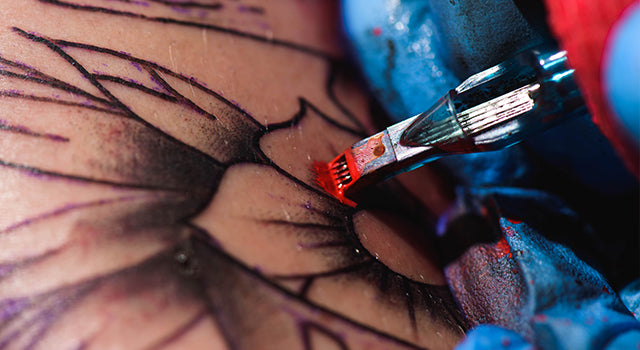
Applications
- Before the Procedure: Similar to traditional tattooing, lidocaine can be applied before the permanent makeup procedure to numb the area and make the process more comfortable.
- During the Procedure: Lidocaine can also be used during the procedure to maintain a comfortable level of numbness.
Effectiveness
The effectiveness of lidocaine in permanent makeup mirrors its use in traditional tattooing. The product's strength, application time, and individual pain tolerance affect its efficacy.
Other Uses of Lidocaine Tattoo Numbing Cream
Lidocaine tattoo numbing cream, while primarily known for its role in the tattooing process, has a range of other uses, too. Let's take a look at how this cream is used beyond tattoos.
Beyond Tattoos: Lidocaine Cream for Anorectal Disorders
Lidocaine cream isn't just for easing tattoo pain. It's also found a place in the treatment of certain anorectal conditions. Here's how:
- Soothing Pain: Lidocaine cream can numb the area around the anus, helping to alleviate pain and discomfort.
- Relieving Symptoms: If you're dealing with conditions like hemorrhoids or anal fissures that cause itching and irritation, lidocaine cream can help calm these symptoms.
- Doctor's Guidance Is Key: Before using lidocaine cream for any anorectal disorders, it's essential to consult your doctor to ensure it's safe and effective for your situation.
Alternative Uses for Recovery Aftercare's Numb Cream
Recovery Aftercare's Numb Cream is well-known in the tattoo world, but it might also be helpful for other things. Let's see what those could be:
- Skin Treatments: Some folks find this cream handy for other skin procedures, such as waxing or laser hair removal. It can help lessen the discomfort associated with these treatments.
- Try a Test Patch: If you're considering using the cream for something other than tattoos, doing a test patch first is a good idea. This can help make sure you don't have a bad reaction.
- Ask a Pro: As always, getting advice from a healthcare professional or the person performing the procedure before using any numbing cream is best.
To sum up, lidocaine tattoo numbing cream is a versatile product that can be used in various ways. Whether for anorectal conditions or other skin procedures, this cream can help manage discomfort. But remember, always consult with a professional before using it for something new.
Side Effects of Lidocaine Cream
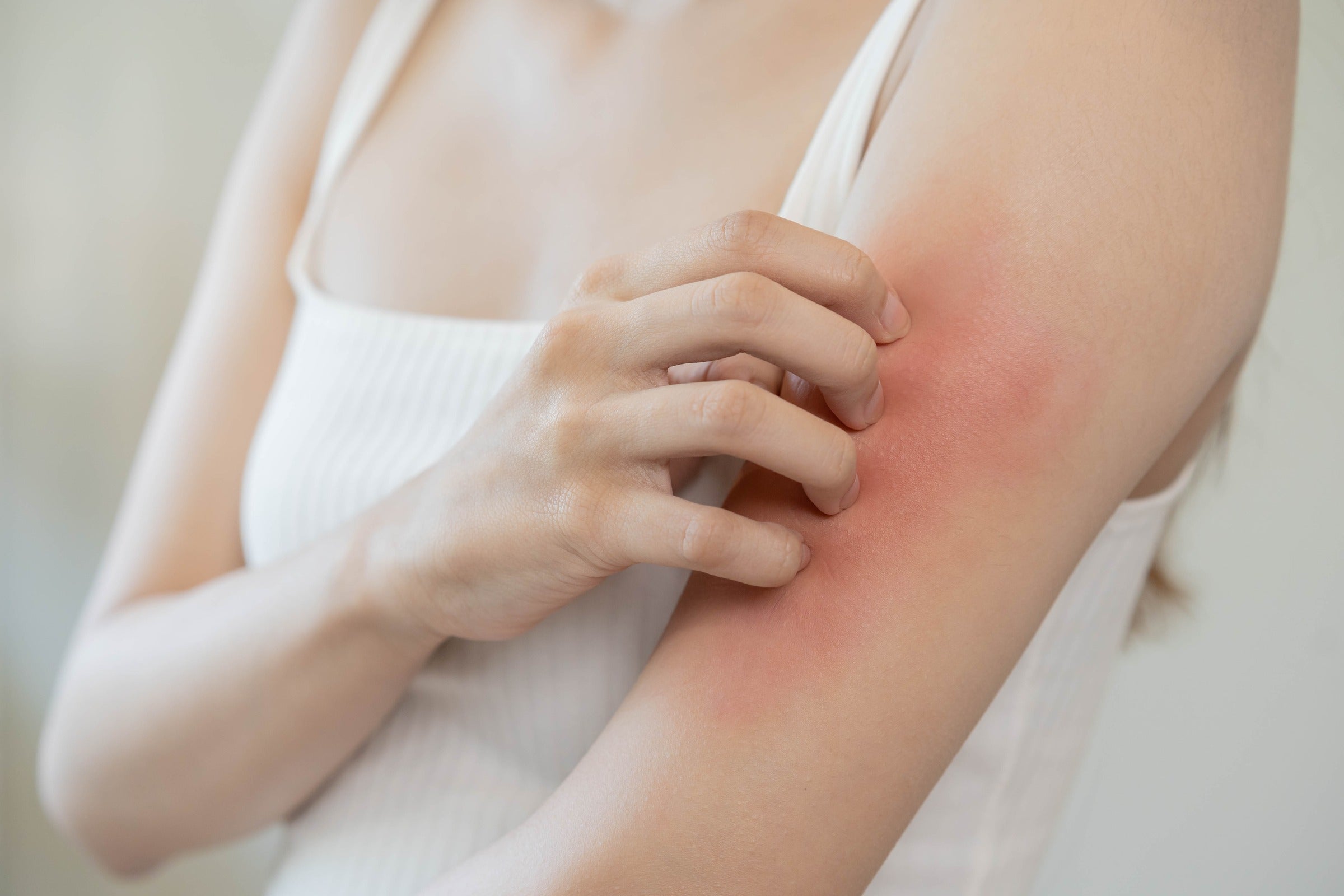
Lidocaine cream, often used as a tattoo numbing agent, can effectively ease the discomfort of getting a tattoo. It may cause side effects for some users. Here are the details.
Potential Side Effects
Lidocaine cream has many side effects, so it is essential to learn more about it before using it. You should know these things:
- Skin Reactions: Some people may experience redness, itching, or swelling at the application site. This is usually mild and goes away on its own.
- Sensitivity Issues: Rarely some individuals might have an allergic reaction to lidocaine, which can cause hives, breathing difficulties, lip swelling, and throat swelling. If this happens, seek medical help immediately.
- Systemic Effects: If used excessively or on large areas of the body, lidocaine cream can get into the bloodstream and cause more severe side effects, such as dizziness, seizures, slow heart rate, or even death. You should always follow the directions on the product label if you have any questions.
Lidocaine Cream Side Effects Duration
Now that we've covered the side effects let's discuss their duration. It's important to note that most side effects are temporary and will dissipate once the body has metabolized the lidocaine. Here are some general timelines:
- Mild Skin Reactions: Usually resolve within a few hours to a few days after discontinuing the cream.
- Allergic Reactions: The length of time these last depends on the severity of the reaction and the individual's immune response. Medical intervention may be necessary.
- Systemic Effects: These can last several hours to a few days, depending on the amount of lidocaine absorbed into the bloodstream. In severe cases, hospitalization may be required.
Everyone's body is different, so these timelines may not apply to everyone. You may experience persistent or severe side effects when using lidocaine cream, seek medical attention immediately.

Use of Numbing Cream in Tattoo Shops
Tattooing often involves pain as part of the process. Lidocaine, a numbing cream, has begun to change that perception. Here are some famous brands of tattoo creams that are used in tattoo parlors.
Numbing Cream in Tattoo Shops: Insights
When it comes to numbing creams, opinions vary within the tattoo industry. Here's what we've found:
- Varied Use: Some tattoo artists regularly offer numbing cream to their clients, especially those getting their first tattoo or a particularly large or sensitive one. Others feel it alters the tattooing process and prefer not to use it.
- Client Comfort: Most tattoo shops aim to make clients comfortable regardless of personal opinions. So, if a client requests numbing cream, many artists will accommodate.
- Professional Advice: Discussing numbing cream with your tattoo artist is always best before opting for numbing cream. Experts can provide advice based on how lidocaine may affect the tattooing process.
Lidocaine Tattoo Numbing Products Dr. Numb: Spotlight
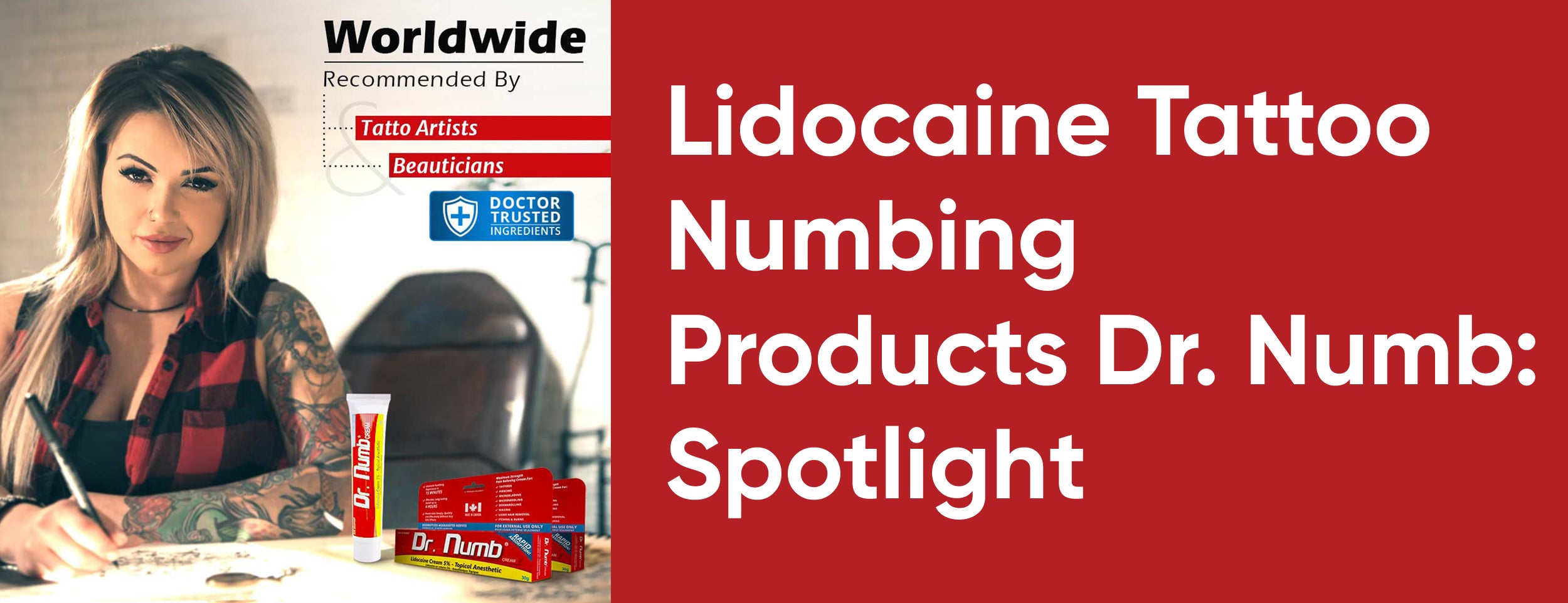
Lidocaine tattoo numbing creams have revolutionized the tattoo industry by making the process less painful for many. We'll spotlight one of the most popular products in this category: Dr. Numb Cream.
Dr. Numb Cream: What You Need to Know
Dr. Numb Cream is a well-known name in the world of tattoo-numbing creams. Here's everything you need to know about it:
- Powerful Numbing: Dr. Numb Cream contains a high percentage of lidocaine, which effectively helps to numb the skin, making tattoo procedures more comfortable.
- Easy to Use: Cream applies easily and begins working immediately. It can also be re-applied during longer tattoo sessions if needed.
- Popular Choice: Many tattoo artists recommend Dr. Numb Cream because of its effectiveness and reliability.
- Multiple Uses: Besides tattoos, Dr. Numb Cream can also be used for other procedures like laser hair removal, piercing, and waxing.
- Safety First: Consult your tattoo artist or healthcare provider, including Dr. Numb, before getting a tattoo.
Conclusion
Lidocaine Tattoo Numbing Cream has emerged as a significant change, not just in the world of tattoos, but also in other areas like treating anorectal disorders and as a potential recovery aftercare option.
While it's essential to be aware of potential side effects and put myths such as causing permanent numbness to rest, the benefits of this product are undeniable. Whether you're a professional tattoo artist looking to enhance your clients' comfort or a tattoo enthusiast seeking a less painful experience, Lidocaine Tattoo Numbing Cream could be the answer.
With the correct information and careful usage, you can turn the oft-dreaded tattoo pain into a thing of the past. So, the next time you head to the tattoo shop, inquire about Lidocaine Tattoo Numbing Cream.

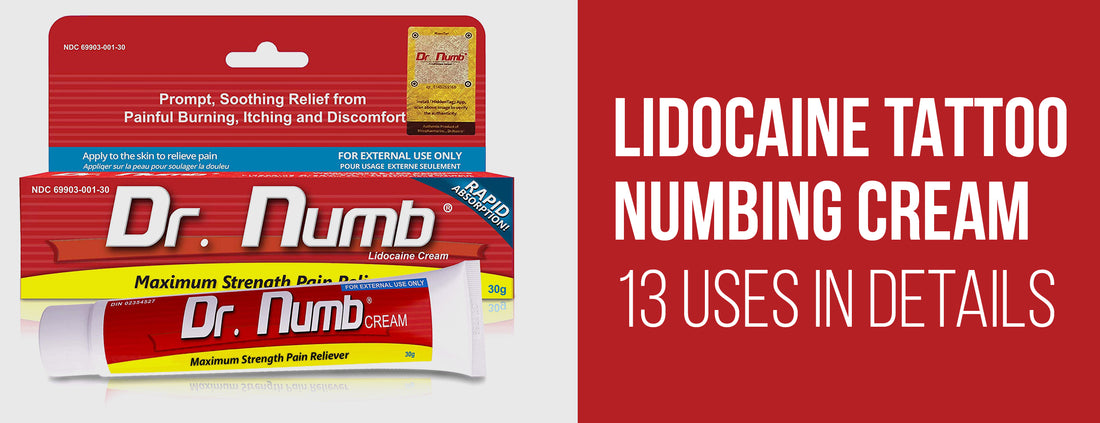

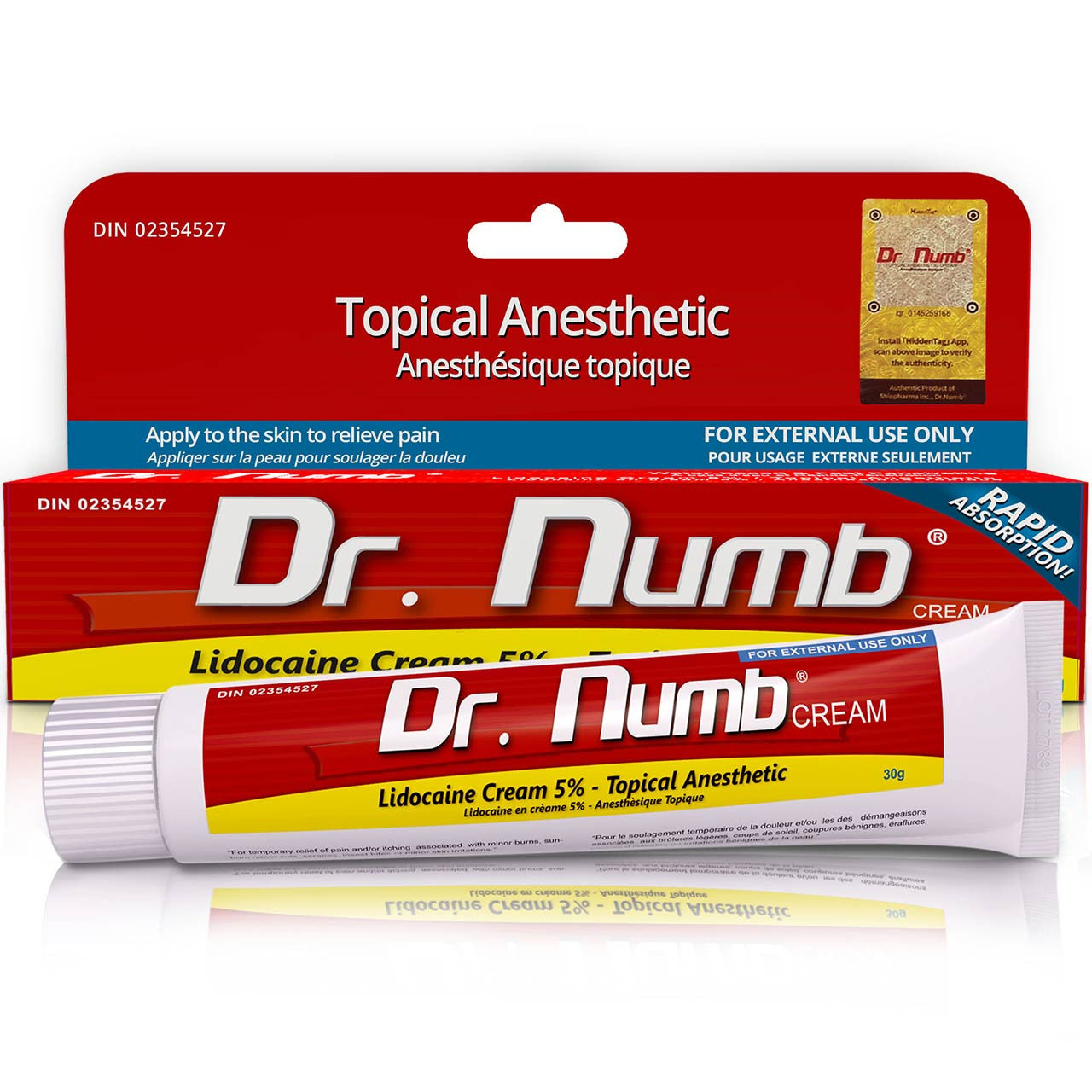
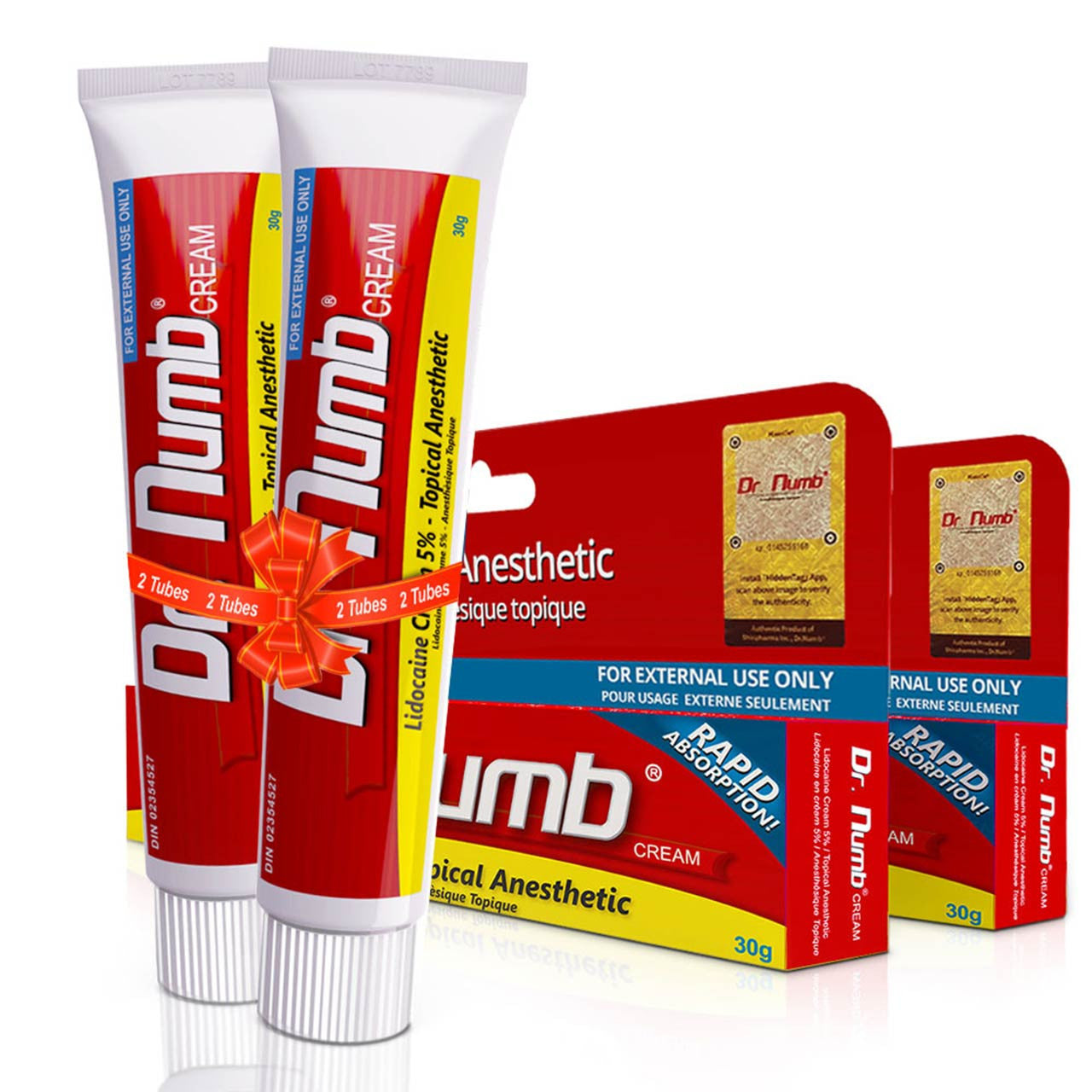
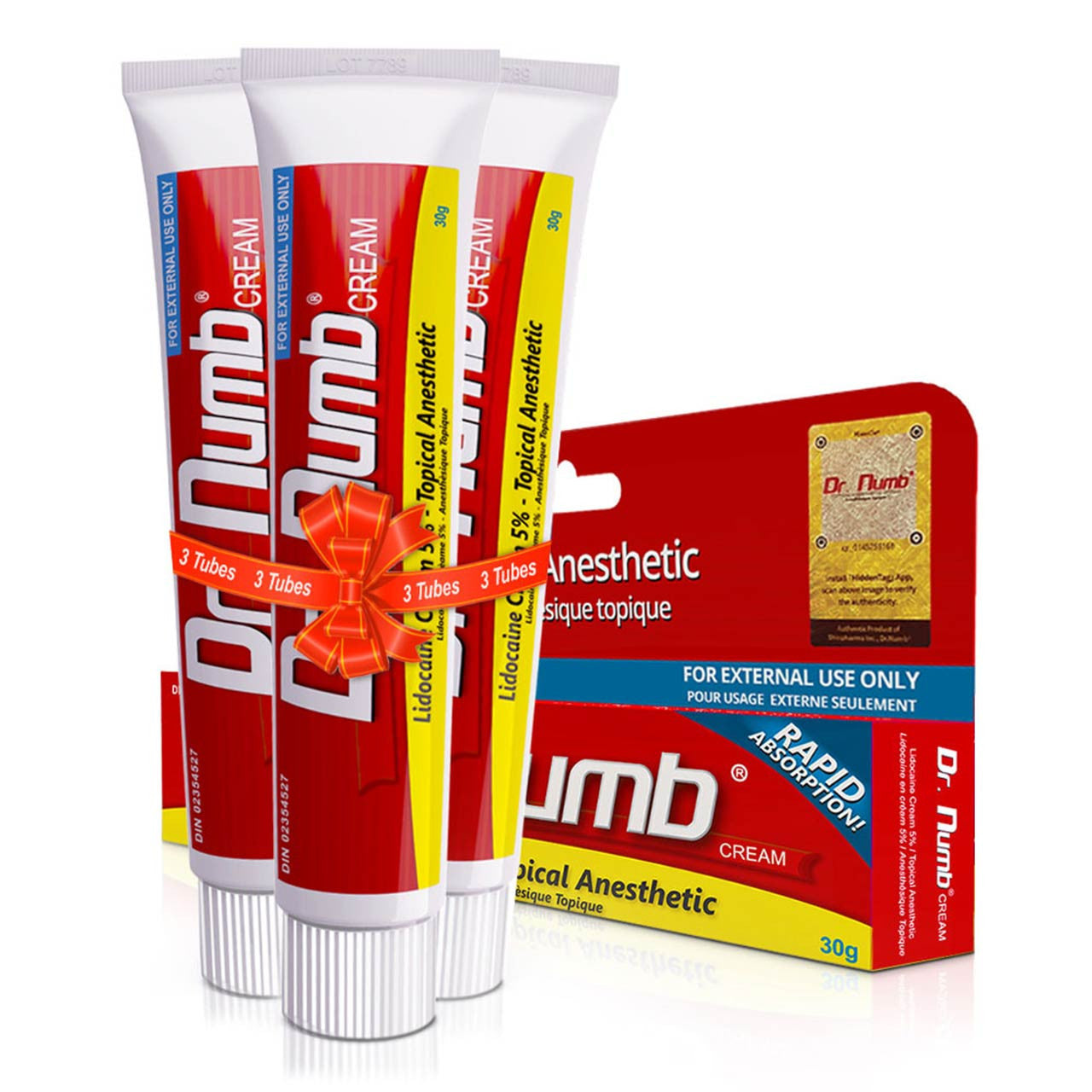
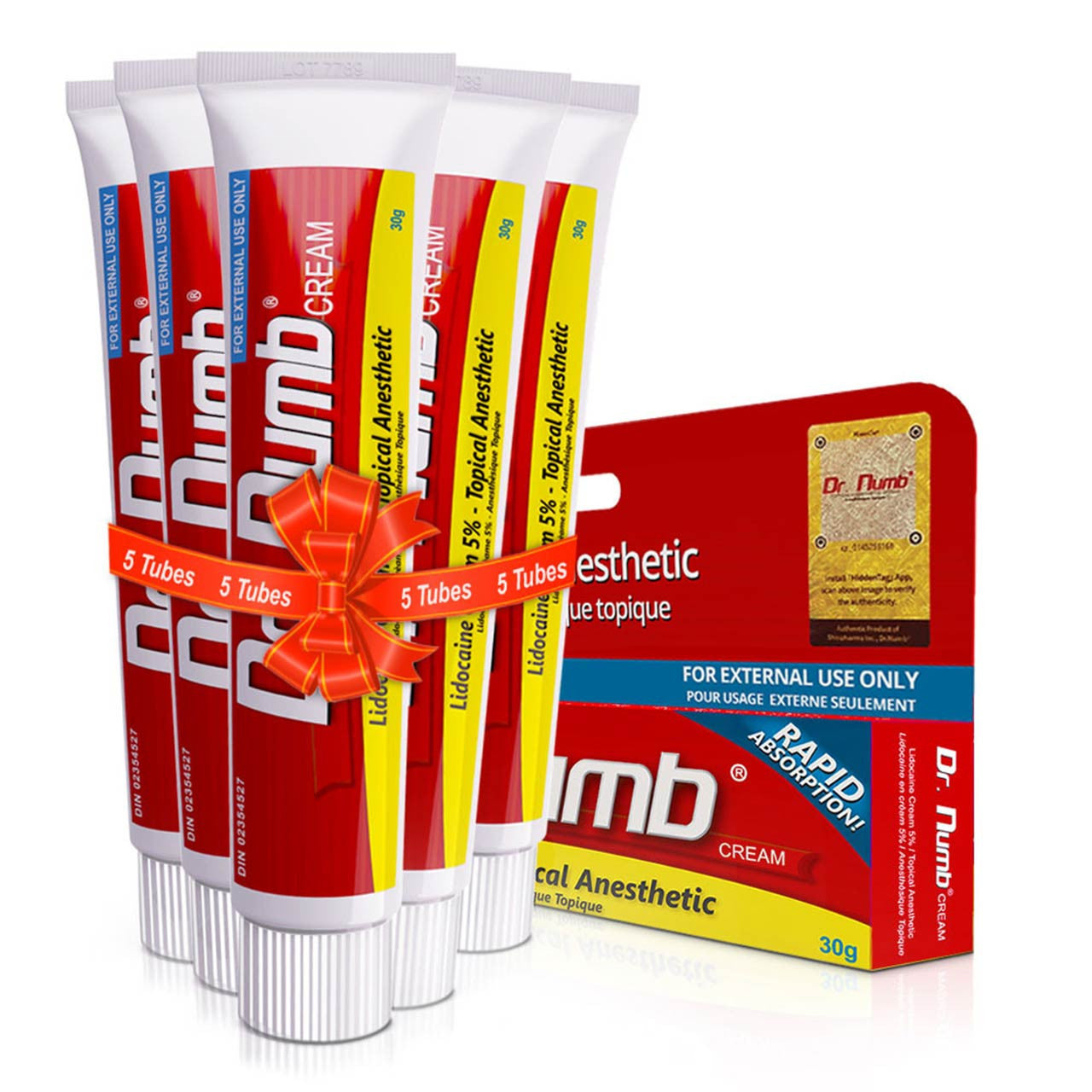
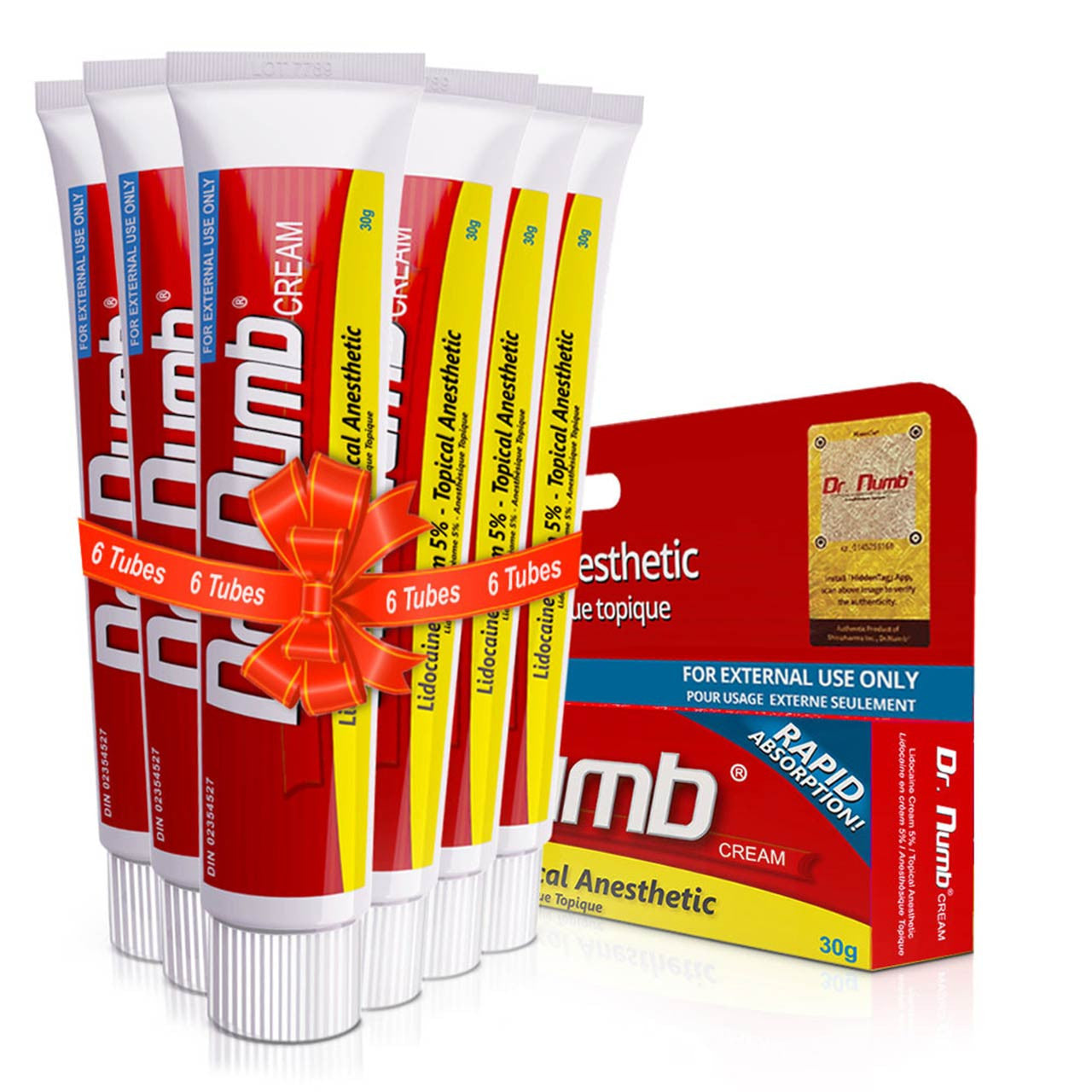
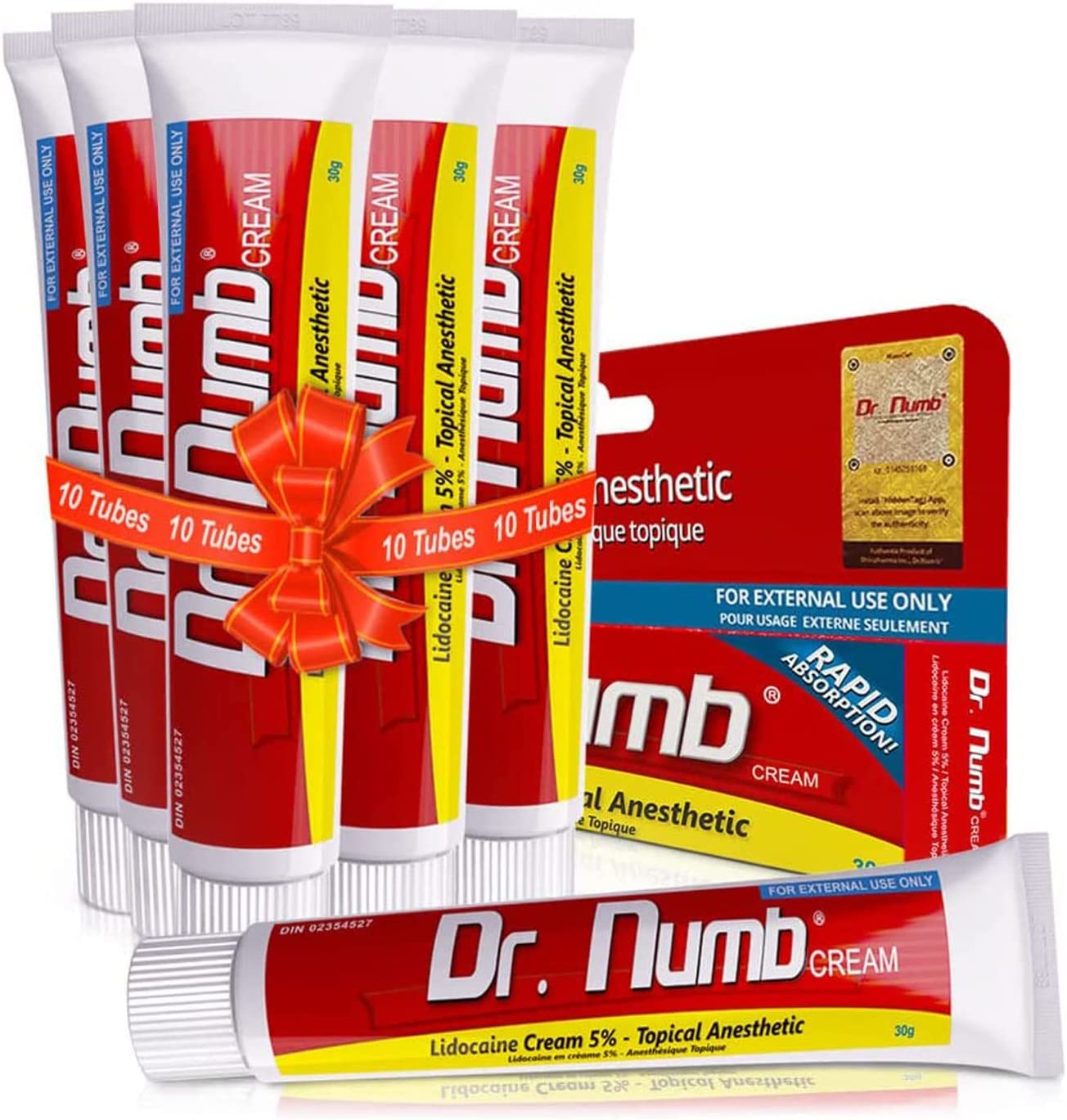
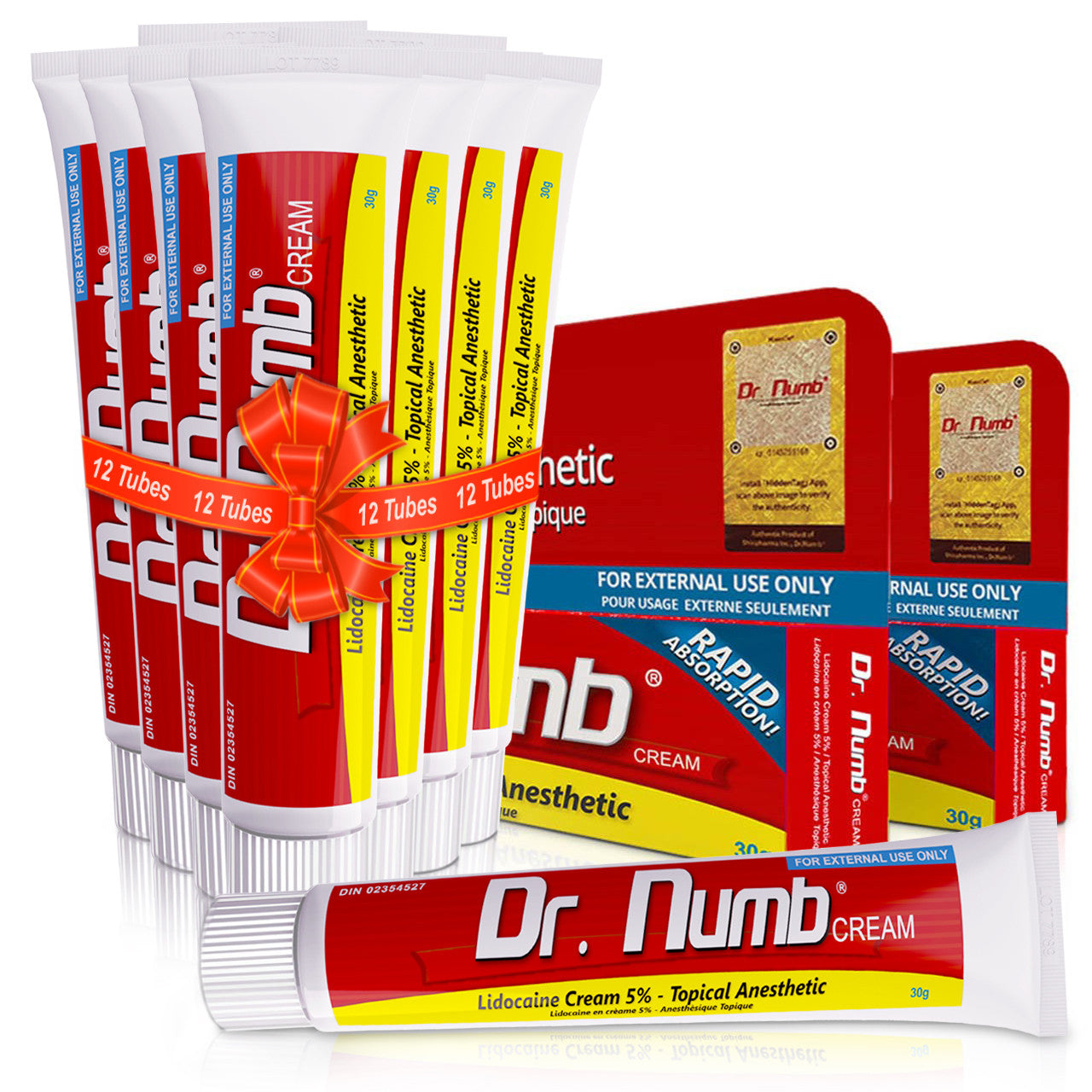



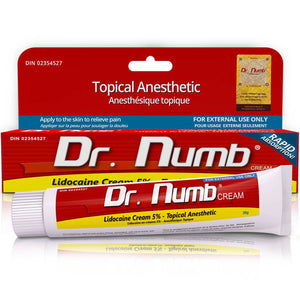
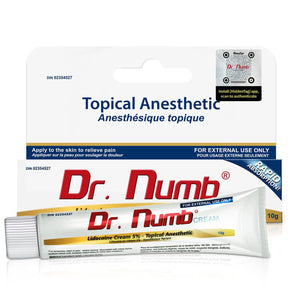


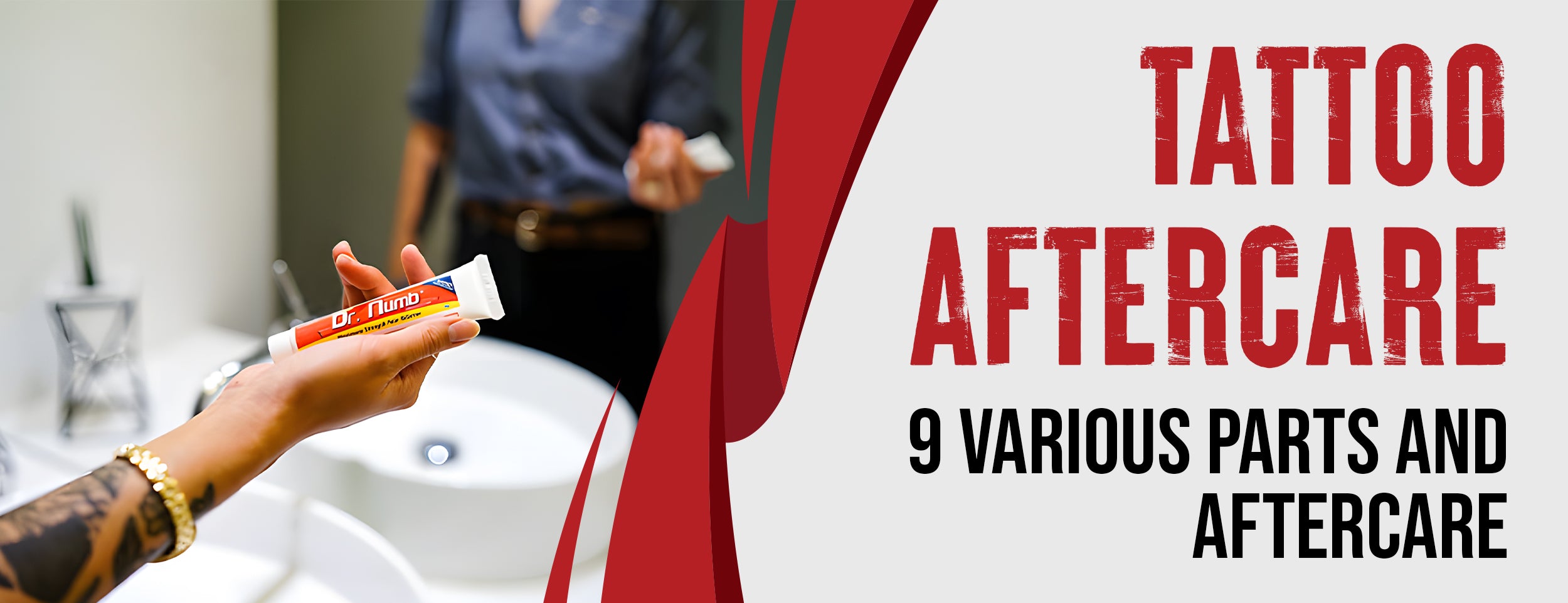
![Antibiotics and Tattoos: 3 Risks and 3 Effects [with 4 Precautions]](http://drnumb.ca/cdn/shop/articles/Can_You_Get_Tattooed_On_Antibiotics__3_Risks_and_3_Effects_4_Precautions.jpg?v=1714128292)

